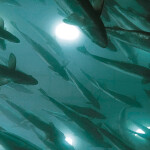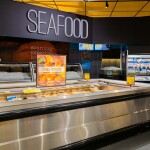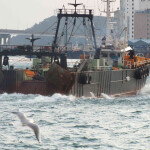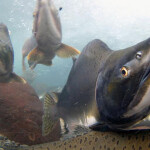The Alaska Superior Court dismissed on Friday, 17 May, a lawsuit against the Bristol Bay Regional Development Association (BBRSDA) that claimed the organization was misusing tax dollars to oppose Pebble Mine, a proposed open-pit copper and gold mine in Bristol Bay, Alaska, home to the world’s largest sockeye salmon run.
Six Bristol Bay fishermen, all members of BBRSDA, filed the lawsuit on 1 April, 2019. A spokesperson for the mine’s developer, Pebble Mine Limited, admitted his company had provided the plaintiffs with financial backing to support the suit.
The lawsuit took issue with more than USD 250,000 (EUR 221,900) in BBRSDA contracts with two organizations – United Tribes of Bristol Bay and SalmonState – which the plaintiffs claimed were designed to “influence the permitting and prevent construction of Pebble Mine” and fell outside the BBRSDA’s statutory purposes.
Alaska Superior Court Judge Yvonne Lamoureux backed the BBRSDA’s stance that opposing Pebble Mine is in line with its mission statement, which is to increase the value of fish caught in the region.
BBRSDA Executive Director Andy Wink said his organization would rather not have to spend money fighting Pebble Mine.
“I think this whole thing is kind of frustrating because no one in our organization wants to have to spend time and resources, the fishermen’s money, to protect salmon habitat. But it’s vital in this case. And we certainly never wanted to cross the administration. We’re just trying to do the right thing to help fishermen,” Wink told SeafoodSource on Monday, 20 May.
The court case looked into ways BBRSDA could advance its mission and ruled that the “chosen methods of promotion in an effort to maximize both the abundance and value of seafood in its region via the [c]ontracts appear consistent with and in furtherance of its purposes.”
Created in 2005, BBRSDA is funded by a one-percent tax on fish landings in Bristol Bay, and membership is mandatory for most fishermen in the region. The organization has been fundamental in a fishery-wide towards more and higher-quality fish fillets,and has stepped up branding and marketing that has helped buoy prices on fish caught in Bristol Bay.
“We have to fight the mine to protect our brand. When we say that our fishery is pristine and clean and abundant, we have to make sure that’s true,” Wink added.
Last season, the fishery saw a run of 62.3 million fish, the largest since Alaska’s Department of Fish and Game started keeping records in 1893. Ex-vessel sockeye prices averaged USD 1.26 (EUR 1.13) a pound, with an ex-vessel value of USD 275.5 million (EUR 247 million).
“The value of our fishery is higher than it's ever been,” BBRSDA Board President Mike Friccero said in a press release.
Efforts to exploit Pebble’s mineral deposits have been ongoing since the late 1990s. With mining-friendly administrations on the national and state levels, Pebble Limited Partnership is making a renewed push, but the U.S. Army Corps of Engineers Draft Environmental Impact Statement (DEIS) has come under criticism after allegations of misrepresenting the intended scope of the mine, presenting incomplete scientific assessments, and failing to propose a plan for remediation and monitoring at the mine site. The comment period for the DEIS is open until 1 July.







